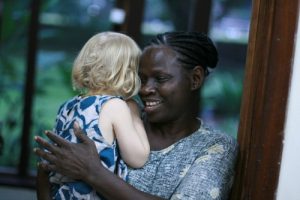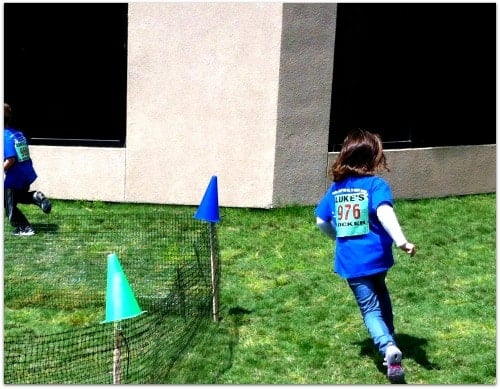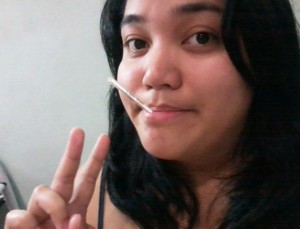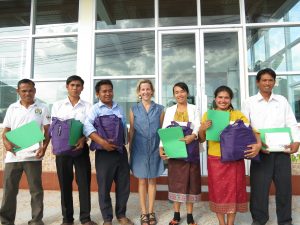
by Jill | Aug 14, 2013 | 2013, Africa, Being Thankful, Childhood, Cultural Differences, Health, Human Rights, International, Loss of Child, Poverty, World Motherhood
 Malaria has been in the news this week. Or, rather, the antimalarial medication mefloquine has been getting a lot of attention. The FDA recently issued a black box warning on this old standard for soldiers, vacationers, and expats in faraway, mosquito-infested lands. Faraway lands like the Congo, where I live with my husband and two small children.
Malaria has been in the news this week. Or, rather, the antimalarial medication mefloquine has been getting a lot of attention. The FDA recently issued a black box warning on this old standard for soldiers, vacationers, and expats in faraway, mosquito-infested lands. Faraway lands like the Congo, where I live with my husband and two small children.
For us, malaria is always on our minds. We think about the disease as we spray on our daily layer of chemicals in the morning, shun outside games at dusk, and gaze through the gauze of the nets above our beds just before closing our eyes at night. My son was even an Anopheles mosquito for Halloween one year. Malaria is that scary—and also that normal—for our family. (more…)

by Meredith (USA) | Aug 9, 2013 | Childhood, Competition, Education, Exercise, Family, Health, Kids, Life Balance, Life Lesson, Maternal Health, Motherhood, Music, Parenting, School, Sports, Stress, USA, World Motherhood, Younger Children, Youth Programs
 The air is slowly starting to get a bit cooler and the days a bit shorter (well, maybe not in Texas…but I know it is in some parts of the world), and I know it can only mean that fall will be soon approaching. Fall approaching in the Northern Hemisphere also means school starting, schedules to follow, and the onset of after school activities.
The air is slowly starting to get a bit cooler and the days a bit shorter (well, maybe not in Texas…but I know it is in some parts of the world), and I know it can only mean that fall will be soon approaching. Fall approaching in the Northern Hemisphere also means school starting, schedules to follow, and the onset of after school activities.
I don’t know how it is in your part of the globe, but here in Texas, some children start playing tackle football from the time they can walk (it seems). If they aren’t playing football, then they are playing year round baseball and look like mini major league players. A few months ago, I was talking to a mom of a girl in my son’s grade and she was telling me that both her girls are in ballet two times a week, gymnastics one day a week, one takes piano and the other takes violin lessons. And the same daughter who takes violin lessons, gymnastics and ballet also has to swim four days a week at 7:30 pm at night to be able to compete on the swim team. Her daughter is only going into second grade!!! (more…)
Meredith finds it difficult to tell anyone where she is from exactly! She grew up in several states, but mainly Illinois. She has a Bachelor of Science degree in Elementary Education from the University of Illinois at Champaign/Urbana which is also where she met her husband. She taught kindergarten for seven years before she adopted her son from Guatemala and then gave birth to her daughter two years leter. She moved to Lagos, Nigeria with her husband and two children in July 2009 for her husband's work. She and her family moved back to the U.S.this summer(August 2012) and are adjusting to life back in the U.S. You can read more about her life in Lagos and her adjustment to being back on her blog: We Found Happiness.
More Posts

by Patricia Cuyugan (Philippines) | Jul 25, 2013 | Discipline, Health, Me-Time, Parent Care, Philippines, Stress, World Moms Blog, World Motherhood
 I’ve been on supermom mode over the last few months. School has started for us here in the Philippines, and for the first time my son is spending the whole day in class. Because of this I’ve been on 5am kitchen duty preparing breakfast and packing snacks and lunch. I’ve been spending most of my days at home, working. I try to take on as many projects as I can these days because at present, mine is the primary source of income for our family. Afternoons are spent studying and doing homework with the kid after school. In between everything else, there are errands to run, meetings and events to attend, and countless other things to do. Thankfully, my husband has taken over driving duties. He also helps with the homework. He brings me ice cream when he knows I’m extra stressed out. I am glad that I’m not alone in this, but it has honestly begun to take its toll.
I’ve been on supermom mode over the last few months. School has started for us here in the Philippines, and for the first time my son is spending the whole day in class. Because of this I’ve been on 5am kitchen duty preparing breakfast and packing snacks and lunch. I’ve been spending most of my days at home, working. I try to take on as many projects as I can these days because at present, mine is the primary source of income for our family. Afternoons are spent studying and doing homework with the kid after school. In between everything else, there are errands to run, meetings and events to attend, and countless other things to do. Thankfully, my husband has taken over driving duties. He also helps with the homework. He brings me ice cream when he knows I’m extra stressed out. I am glad that I’m not alone in this, but it has honestly begun to take its toll.
I know that a lot of moms are guilty of concentrating too much on taking care of their kids, their husbands and their households that they forget to take care of themselves. I just never thought that I would one day become that sort of mommy. Truth be told I’ve gained so much weight from stress-eating. I’ve completely given up on the exercise routine I promised myself that I would stick to. I’ve been sleeping late and I waking up before dawn. I know that I’ve been extra tired because some nights I just pass out after dinner and wake up when my alarm goes off the following morning. The funny thing is, even though my body has been telling me to slow down, I’ve been choosing to listen to that little nagging voice in my head telling me that other moms have so much more to do than I do, and that I should just keep on keeping on.
And so I did.
And then I got sick. (more…)
Patricia Cuyugan is a wife, mom, cat momma, and a hands-on homemaker from Manila, whose greatest achievement is her pork adobo. She has been writing about parenting for about as long as she’s been a parent, which is just a little over a decade. When she’s not writing, you can usually find her reading a book, binge-watching a K-drama series, or folding laundry. She really should be writing, though! Follow her homemaking adventures on Instagram at @patriciacuyugs.
More Posts
Follow Me:




by Tinne from Tantrums and Tomatoes | Jul 15, 2013 | Belgium, Education, Government, Health, Special Needs, Tantrum and Tomatoes, Uncategorized
 It is a running gag that we Belgians like to make things complicated. This shows itself best in the Moloch which calls itself ‘Government’.
It is a running gag that we Belgians like to make things complicated. This shows itself best in the Moloch which calls itself ‘Government’.
Government – like all of its kind – has a thing for paperwork. It starts even before you are born, when your mother and father are requested to fill in form after form to guarantee your basic rights and to prove that yes you are about to enter the world.
And it goes on and on and on. Papers which need to be filled out announcing your actual birth, your name, gender, weight, etc… Then when you are a few weeks old, your mother will receive an order to have you weighed, measured and to have a friendly chat with a childcare specialist about how you – little pooping nugget – are doing. (Don’t get me wrong, I greatly appreciate this service: these checkups – and accompanying vaccinations – are free of charge, and they often aid in detecting health issues really early.)
When you enter school the whole administrative shebang is transferred to another institution, which will now not only monitor your growth, weight gain and fine motor skills but also your learning process and general scholastic development. And, of course, there is paper work to be filled out…
So this is how I found myself filling out a five–page questionnaire on a rainy night in May in preparation of our eldest’s first annual checkup. Most questions were simple and straightforward : “Do either of the parents wear glasses?” (Yes, both), “Any hereditary diseases, mental illnesses,…” (None), “Primary language spoken at home?” (Dutch), “Any serious illnesses as an baby/infant?” (No).
But there was one question which gave made me pause : “Was either of the parents treated for a learning disability as a child/adult? If yes, please specify which one.”
Well, yes, actually. I was.
When I was about seven or eight years old I was diagnosed with the type of Attention Deficit Disorder, now called ADHD–I. Later they threw in some dyscalculia for good measure. While I never took any medication, I did receive treatment well into my teenage years.
Those were very difficult times, mainly because when I was diagnosed, the whole ADHD–spectrum was relatively unknown. Most people – teachers, close family members and other – scoffed when ADHD or ADD was mentioned.
Many called it an imaginary condition and would tell me that I was making things up, that I was just “not that bright”, “plain stupid”, “not trying hard enough” or – my personal favourite – “a lazy good for nothing pest, who would never get a degree and whose only career option was cleaning toilets”.
I vividly remember how my mother and I were asked to come to the principal’s office one day during my first year of high school, so we could discuss my poor results and lack of attention during class. We arrived carrying a thick file full of test results, reports, statements,… only for the principal to refuse even to look at the file and tell my mother that “it was about time that she accepted her daughter was not as intelligent as she was and that she should not waste peoples time by insisting I remained in a normal classroom.”
Needless to say, my mom was a wee bit pissed off and the discussion which followed can best be described as a fight between a lion with anger issues and a crazy, rabid baboon on steroids.
It got better when I changed schools the next year. It got better when I got older, because I got a better view on the what, the why and the how. It got better because I developed coping skills. It got better because the therapy actually worked and somehow my brain got whipped into some kind of shape. As we now know there is no “curing” ADHD. I still get distracted easily and rely on noise cancellation headphones or classical music to get me through a bad day.
After filling in the questionnaire I catch myself looking at my children all too often, and playing the “What if” – song in my head.
Because what if – along with the sensitive skin (sorry about that one, by the way, kids) and the shape of their eyes – I gave my kids those parts of me. What if, they, too, will have to fight a lifelong battle?
I know times are different. We are lucky to live in a part of the world where education is a basic right, not a privilege and not something for which we – women – have to fight. I know there is a better understanding, new developments in treatment and more acceptance regarding learning disabilities as opposed to when I was a kid. I know – think, hope, … I will probably be more prepared in dealing with one or both of my children being diagnosed with a learning disability than my own mother, who was basically left in the middle of the jungle with a broken compass as her only tool to help her fight a way out, if only because I’m aware of the fact that this situation may arise and have lived it, am in still living it, coping with it.
But still…
What if… ?
How are people dealing with the whole learning disability spectrum in your neck of the woods? If you are a “former special needs child turned adult” how would you deal with this situation?
This is an original post for World Moms Blog by Tinne of Tantrums and Tomatoes.
Photo credit to the author.
Born in Belgium on the fourth of July in a time before the invention of the smart phone Tinne is a working mother of two adorably mischievous little girls, the wife of her high school sweetheart and the owner of a black cat called Atilla.
Since she likes to cook her blog is mainly devoted to food and because she is Belgian she has an absurd sense of humour and is frequently snarky. When she is not devoting all her attention to the internet, she likes to read, write and eat chocolate. Her greatest nemesis is laundry.
More Posts - Website
Follow Me:



by Olga Mecking | Jul 1, 2013 | 2013, Being Thankful, Child Care, Family, Girls, Grandparent, Health, Husband, International, Life Lesson, Marriage, Me-Time, Motherhood, Netherlands, Parenting, Siblings, Travel, World Motherhood, Younger Children
 Imagine yourself in our situation. Your friends are getting married. The wedding is in beautiful Italy. You decide to go, even if it means leaving your two daughters with your parents-in-law, and just take the baby with you. Your in-laws arrive and you ask them to take your 3-year old to dancing class, show them where all the things are and tell them when to bring the girls to daycare. You’re excited. You pack your bags the day before the wedding and go to bed.
Imagine yourself in our situation. Your friends are getting married. The wedding is in beautiful Italy. You decide to go, even if it means leaving your two daughters with your parents-in-law, and just take the baby with you. Your in-laws arrive and you ask them to take your 3-year old to dancing class, show them where all the things are and tell them when to bring the girls to daycare. You’re excited. You pack your bags the day before the wedding and go to bed.
But you don’t sleep. Instead, you talk. You tell your husband that you’re not really happy with this arrangement. That you don’t trust your in-laws enough to leave your children with them. That you don’t even feel good about your decision to leave the children with anyone. In the end you start crying and tell your husband that your eldest daughter doesn’t like you and that you’re the worst mom ever.
And then your husband tells you that you’re an amazing mom. After you calm down and feel somewhat better he tells you that he’s not happy with this arrangement, either. You see, our little girl has just had the chicken pox, and according to my husband’s calculation, our baby would be at risk of getting it right during our trip to Italy. The baby was fussy for the last few days, he has had no fever, but his temperature is slightly elevated. What to do?
Consider two possibilities.
Number one: You decide to stay. You’re afraid that if he’s going to get the chicken pox, it will spoil your whole trip. You don’t want the other children to get it, too, and besides, traveling with a fussy baby full of ugly itchy red spots is no fun. You tell your in-laws in the morning. They stay for a few days, but that’s OK. Your MIL learns to accept your decisions and to get out of your way when you sit down to read a book. You learn to tell her when you’re overwhelmed and exercise your privileges as a mom.
When your children wake up in the morning, you feel as if you haven’t seen them for ages. You’re suddenly full of patience. You’re relieved that you didn’t have to leave without them. You braid your big girl’s hair in twelve pink little braids. You feel great. Your decision isn’t entirely selfless. You don’t trust your in-laws and don’t want to leave the girls with them, and that’s OK.
Number two: You wake up in the morning, check your baby’s temperature and decide he won’t get the chicken pox after all. You pack your bags, kiss the girls goodbye and leave to catch your flight. You have fun at the wedding, you dance and sing and eat delicious food. You realize that you haven’t had a vacation for ages. You enjoy waking up in the morning without having to get three children dressed and ready for the day. You get to have a whole conversation with your husband. You go back home and are happy to see your children again. You feel great and relaxed and you’re sure that going to that wedding was exactly what you needed right now. Your decision isn’t entirely selfish. You know very well that having a short vacation will make you more relaxed and a better mom. And that’s OK, too.
How did we choose? We stayed. I was sad not to be there when our friends said: “I do”. Our son didn’t get the chicken pox; his skin is silky smooth as always. So, was it a bad decision? No. Would it have been a bad decision had we gone? No. The thing is that while I decided to stay, if it hadn’t been for the chicken pox threat, I would have gone to that wedding.
You can make a selfish decision and still be a good mom. You can make a decision seen as selfless and make it for purely selfish reasons. It doesn’t matter. You’re a good mom.
Have you ever been in this sort of predicament? What did/would you do?
This is an original post to World Moms Blog from our writer and mother of three in The Netherlands, Olga Mecking.
The photograph used in this post is attributed to the author.
Olga is a Polish woman living in the Netherlands with her German husband. She is a multilingual expat mom to three trilingual children (even though, theoretically, only one is trilingual since she's old enough to speak). She loves being an expat, exploring new cultures, learning languages, cooking and raising her children. Occasionally, Olga gives trainings in intercultural communication and works as a translator. Otherwise, you can find her sharing her experiences on her blog, The European Mama. Also take a while to visit her Facebook page .
More Posts - Website
Follow Me:




by Kristyn Zalota | Jun 25, 2013 | 2013, Birthing, Clean Birth Kits, Health, Maternal Health, Philanthropy, Social Good, Uncategorized, World Moms Blog

Photo By Kristyn Zalota
Nine months ago, I received the first donation to CleanBirth.org, my project to make birth safer in Laos. It was fittingly given on the playground after school by a fellow mom.
I say fittingly, because I have spent much of the past 7 years of motherhood pushing swings and spotting my monkeys on bars. It is also fitting because the bulk of the three hundred donors who followed that first donation are fellow frequenters of playgrounds. The support from moms, dads, and grand parents totals almost $20,000 in just 9 months!

Kristyn with OVA Staff and Nurses in Laos
So how does a playground aficionado add safe birth advocacy to her daily life?
Here’s my 3-step plan for changing the world in the way only you can:
1. Find your passion. My kids are 4 and 7 today, but when they were younger full-time, stay-at-home motherhood was tough for me. I wanted to be with them and I also wanted to travel and work. By way of a compromise, I volunteered on projects in Costa Rica, Nicaragua, Thailand, Cambodia and Uganda. Sometimes the kids came with me – we lived in Thailand and Cambodia for a year – and other shorter trips they stayed at home with their dad and grandparents. My experiences as a volunteering mother transformed my long-standing interest in women’s empowerment into a passion for global maternal health.
Once I realized that I wanted to advocate for women and make birth safer, I became a mama on a mission.
2. Find a do-able project. So, how can I be at pick-up by 1pm everyday *and* make birth safer in Laos? I started with a manageable project. CleanBirth.org provides Clean Birth Kits (an absorbent sheet, medicated soap, a sterile blade, cord clamp, picture instructions) and birth education to women in one province of Laos. Studies show that kits prevent infection in both mothers and babies.
To ensure that the project is locally driven and sustainable, I have partnered with two organizations. The first partner is Our Village Association (OVA), a Lao non-profit with 10 years of experience working with local villagers. Together with OVA, CleanBirth.org trains local nurses in the use and distribution of Clean Birth Kits. OVA continuously monitors the nurses, tracks the use of the kits and reports back to me via email.
The second organization that I teamed up with, AYZH, manufactures high-quality Clean Birth Kits in India and mails them directly to OVA in Laos. Since the kits are shipped directly, I do not need to be on the ground to ensure quality-control or resupply.
I travel to Laos twice per year to see everything for myself. In the US, I spend all of my kid-free hours raising funds and awareness – and loving every minute of it!
3. Find help. None of this would be possible without the support of my family: my husband, mother-in-law and parents. Having the people closest to you believe in your cause is so important, especially if you are working 30 hours per week and not getting paid.
I have also asked for help from maternal health experts and volunteers. By going to the experts, to those already doing the work, I have been able to capitalize on best practices. Volunteers can be invaluable. When someone competently takes on a task, no matter how small, it enables me to move onto another to-do item.
I can honestly say that I am living my dream life. I still hit the playground every afternoon — after 4 hours of working to promote safe birth. When I travel to Laos, I pack in more in 2 weeks than I could have imagined in my pre-kids wanderings. No time to waste, I’ve got kids at home missing their mama.
If you are reading this and thinking: “I have a passion for _____ but I don’t know where to start,” I urge you to just start. Find a small first project. Make time each day to work on it. Get advice from others who are doing similar work. Ask for help.
If your goal is to help others, you will find support from many places, often you just need to ask. I have been overwhelmed by the unexpected generosity and support of friends and perfect strangers.
So use your passion, get out there and change the world in the way only you can!
What’s Your Passion?
This is an original post written for World Moms Blog by Kristyn Zalota.
____________________________________________________________
Kristyn brings her years of experience as an entrepreneur and serial volunteer to CleanBirth.org. She holds a MA, has run small businesses in Russia and the US, and has volunteered in Nicaragua, Costa Rica, Thailand, Cambodia, Laos and Uganda on projects related to women’s empowerment. After having children, Kristyn became an advocate for mothers in the US, as a doula and Lamaze educator, and abroad, as the Founder of CleanBirth.org. She is honored to provide nurses in Laos with the supplies, funding and training they need to lower maternal and infant mortality rates in their villages.
Kristyn brings her years of experience as an entrepreneur and serial volunteer to CleanBirth.org. She holds a MA, has run small businesses in Russia and the US, and has volunteered in Nicaragua, Costa Rica, Thailand, Cambodia, Laos and Uganda on projects related to women’s empowerment.
After having children, Kristyn became an advocate for mothers in the US, as a doula and Lamaze educator, and abroad, as the Founder of CleanBirth.org. She is honored to provide nurses in Laos with the supplies, funding and training they need to lower maternal and infant mortality rates in their villages.
More Posts

 Malaria has been in the news this week. Or, rather, the antimalarial medication mefloquine has been getting a lot of attention. The FDA recently issued a black box warning on this old standard for soldiers, vacationers, and expats in faraway, mosquito-infested lands. Faraway lands like the Congo, where I live with my husband and two small children.
Malaria has been in the news this week. Or, rather, the antimalarial medication mefloquine has been getting a lot of attention. The FDA recently issued a black box warning on this old standard for soldiers, vacationers, and expats in faraway, mosquito-infested lands. Faraway lands like the Congo, where I live with my husband and two small children.

 The air is slowly starting to get a bit cooler and the days a bit shorter (well, maybe not in Texas…but I know it is in some parts of the world), and I know it can only mean that fall will be soon approaching. Fall approaching in the Northern Hemisphere also means school starting, schedules to follow, and the onset of after school activities.
The air is slowly starting to get a bit cooler and the days a bit shorter (well, maybe not in Texas…but I know it is in some parts of the world), and I know it can only mean that fall will be soon approaching. Fall approaching in the Northern Hemisphere also means school starting, schedules to follow, and the onset of after school activities.
 I’ve been on supermom mode over the last few months. School has started for us here in the Philippines, and for the first time my son is spending the whole day in class. Because of this I’ve been on 5am kitchen duty preparing breakfast and packing snacks and lunch. I’ve been spending most of my days at home, working. I try to take on as many projects as I can these days because at present, mine is the primary source of income for our family. Afternoons are spent studying and doing homework with the kid after school. In between everything else, there are errands to run, meetings and events to attend, and countless other things to do. Thankfully, my husband has taken over driving duties. He also helps with the homework. He brings me ice cream when he knows I’m extra stressed out. I am glad that I’m not alone in this, but it has honestly begun to take its toll.
I’ve been on supermom mode over the last few months. School has started for us here in the Philippines, and for the first time my son is spending the whole day in class. Because of this I’ve been on 5am kitchen duty preparing breakfast and packing snacks and lunch. I’ve been spending most of my days at home, working. I try to take on as many projects as I can these days because at present, mine is the primary source of income for our family. Afternoons are spent studying and doing homework with the kid after school. In between everything else, there are errands to run, meetings and events to attend, and countless other things to do. Thankfully, my husband has taken over driving duties. He also helps with the homework. He brings me ice cream when he knows I’m extra stressed out. I am glad that I’m not alone in this, but it has honestly begun to take its toll.













